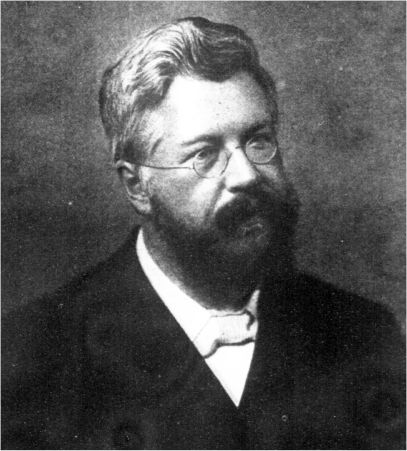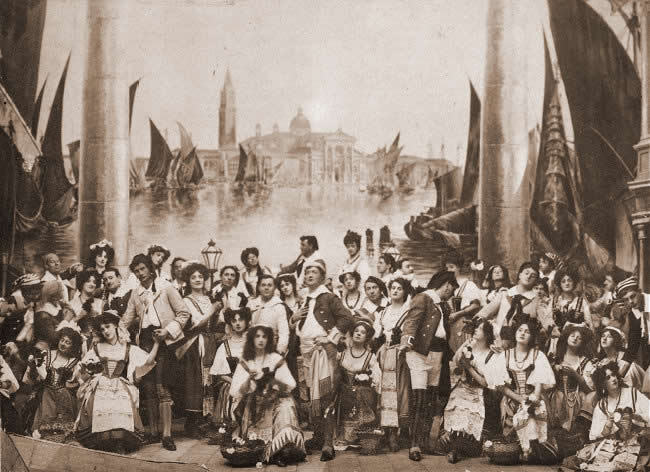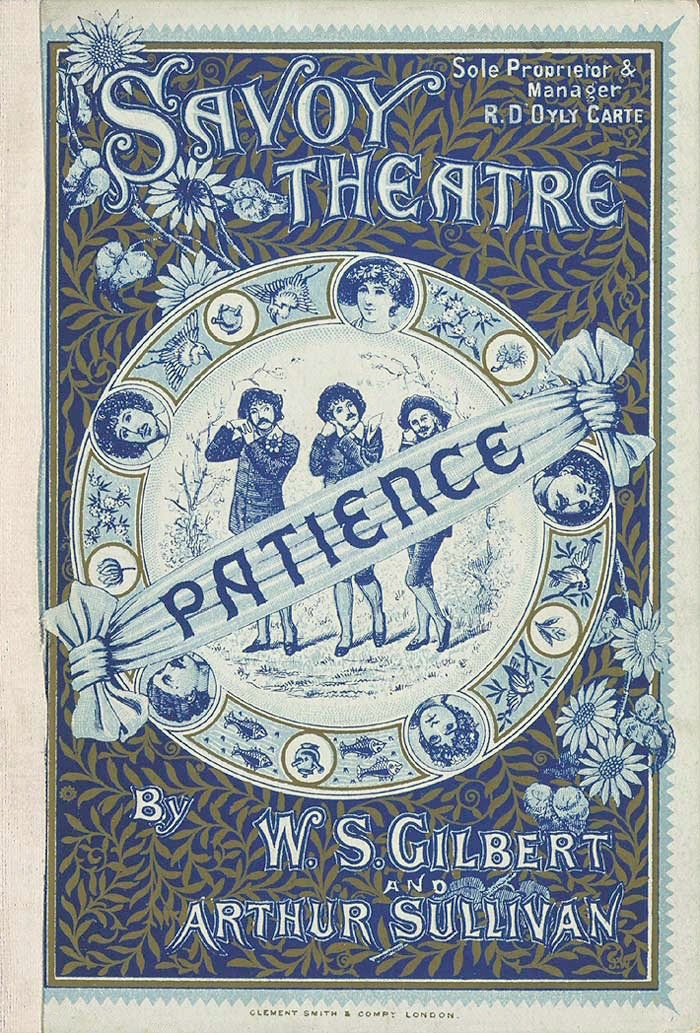|
Hugh Enes Blackmore
Hugh Enes Blackmore (1 October 1863 – 21 May 1945) was a British opera and concert singer and actor. Known as the "Iron-Throated Tenor", he is best remembered for his performances of tenor roles with the D'Oyly Carte Opera Company. His career with D'Oyly Carte spanned almost 30 years, ending with a season as the company's stage manager. He was later a teacher of operatic singing and acting. Early life and career Blackmore was born in Greenock in Scotland, the second of four children born to Elizabeth Mary ''née'' Collier (1834–1922) and Edward Blackmore (1824–1900), a marine engineer. He attended Fettes College in Edinburgh, where he sang tenor solos beginning at age 14. Encouraged by Alexander Potts, his headmaster, Blackmore took singing lessons and hoped to make a career in opera by training in Italy. Blackmore's father, however, wanted him to follow a more secure profession, so he trained as a solicitor in Cardiff. Finding this career not to his liking, he gave u ... [...More Info...] [...Related Items...] OR: [Wikipedia] [Google] [Baidu] |
Rosamunde
''Rosamunde, Fürstin von Zypern'' (''Rosamunde, Princess of Cyprus'') is a play by Helmina von Chézy, which is primarily remembered for the incidental music which Franz Schubert composed for it. Music and play premiered in Vienna's Theater an der Wien on 20 December 1823.Deutsch 1978 p. 499 The play The text version of Chézy's original play, in four acts, as premiered with Schubert's music, is lost. However, a later modified version of the play, in five acts, was discovered in the State Library of Württemberg, and was published in 1996. Fragmentary autograph sources relating to the first version of the play have been recovered, too. The story concerns the attempt of Rosamunde, who was brought up incognito as a shepherdess by the mariner's widow Axa, to reclaim her throne. The long-established governor Fulgentius (Fulvio in the revised version), who already has Rosamunde's parents on his conscience, attempts to thwart Rosamunde, initially by intrigue, then by a marriage propos ... [...More Info...] [...Related Items...] OR: [Wikipedia] [Google] [Baidu] |
Edward Jakobowski
Edward Jakobowski (17 April 1856 – 29 April 1929) was an English composer, especially of musical theatre, best known for writing the hit comic opera ''Erminie''. Life and career Jakobowski was born in Islington, London, the only son of Israel Jakobowski (born c. 1819), a salesman dealing in stationery and cigars, and his wife Fanny (born c. 1834), who were both Viennese of Polish extraction. He had an older sister, Helena (born c. 1855). At age six, he moved to Vienna, Austria, where he lived for some 15 years and was given a musical education. In the late 1870s he lived in Paris for three years. In 1881, he returned to London."Edward Jakobowski and Comic Opera" ''Kate Field's Washington'', vol. 9, no. 3, pp. 300–01, 17 January 1894, accessed 24 April 2014 Jakobowski's most successful work by far, '' ... [...More Info...] [...Related Items...] OR: [Wikipedia] [Google] [Baidu] |
Adrian Ross
Arthur Reed Ropes (23 December 1859 – 11 September 1933), better known under the pseudonym Adrian Ross, was a prolific writer of lyrics, contributing songs to more than sixty British musical comedies in the late 19th and early 20th centuries. He was the most important lyricist of the British stage during a career that spanned five decades. At a time when few shows had long runs, nineteen of his West End shows ran for over 400 performances. Starting out in the late 1880s, Ross wrote the lyrics for the earliest British musical theatre hits, including '' In Town'' (1892), ''The Shop Girl'' (1894) and '' The Circus Girl'' (1896). Ross next wrote the lyrics for a string of hit musicals, beginning with '' A Greek Slave'' (1898), ''San Toy'' (1899), '' The Messenger Boy'' (1900) and '' The Toreador'' (1901) and continuing without a break through World War I. He also wrote the English lyrics for a series of hit adaptations of European operettas beginning with ''The Merry Widow'' ... [...More Info...] [...Related Items...] OR: [Wikipedia] [Google] [Baidu] |
James T
James is a common English language surname and given name: *James (name), the typically masculine first name James * James (surname), various people with the last name James James or James City may also refer to: People * King James (other), various kings named James * Saint James (other) * James (musician) * James, brother of Jesus Places Canada * James Bay, a large body of water * James, Ontario United Kingdom * James College, a college of the University of York United States * James, Georgia, an unincorporated community * James, Iowa, an unincorporated community * James City, North Carolina * James City County, Virginia ** James City (Virginia Company) ** James City Shire * James City, Pennsylvania * St. James City, Florida Arts, entertainment, and media * ''James'' (2005 film), a Bollywood film * ''James'' (2008 film), an Irish short film * ''James'' (2022 film), an Indian Kannada-language film * James the Red Engine, a character in ''Thomas the Tank En ... [...More Info...] [...Related Items...] OR: [Wikipedia] [Google] [Baidu] |
The Grand Duke
''The Grand Duke; or, The Statutory Duel'', is the final Savoy Opera written by librettist W. S. Gilbert and composer Arthur Sullivan, their fourteenth and last opera together. It premiered at the Savoy Theatre on 7 March 1896, and ran for 123 performances. Despite a successful opening night, the production had a relatively short run and was the partnership's only financial failure, and the two men never worked together again. In recent decades, the opera has been revived professionally, first in the US and then in the UK. In ''The Grand Duke'', Gilbert and Sullivan come full circle, back to the theme of their first collaboration, ''Thespis (opera), Thespis'': a troupe of actors taking political power. The plot hinges on the mis-interpretation of a 100-year-old law regarding statutory duels (decided by drawing cards). The baffled leading man of the troupe, Ludwig, spearheads the rebellion against the hypochondriac, miserly Grand Duke and becomes engaged to four different w ... [...More Info...] [...Related Items...] OR: [Wikipedia] [Google] [Baidu] |
The Mikado
''The Mikado; or, The Town of Titipu'' is a comic opera in two acts, with music by Arthur Sullivan and libretto by W. S. Gilbert, their ninth of fourteen Gilbert and Sullivan, operatic collaborations. It opened on 14 March 1885, in London, where it ran at the Savoy Theatre for 672 performances, the second-longest run for any work of musical theatre and one of the longest runs of any theatre piece up to that time.The longest-running piece of musical theatre was the operetta ''Les Cloches de Corneville'', which held the title until ''Dorothy (opera), Dorothy'' opened in 1886, which pushed ''The Mikado'' down to third place. By the end of 1885, it was estimated that, in Europe and America, at least 150 companies were producing the opera.H. L. Mencken, Mencken, H. L.]Article on ''The Mikado'', ''Baltimore Evening Sun'', 29 November 1910 ''The Mikado'' is the most internationally successful Savoy opera and has been especially popular with amateur and school productions. The work has ... [...More Info...] [...Related Items...] OR: [Wikipedia] [Google] [Baidu] |
The Gondoliers
''The Gondoliers; or, The King of Barataria'' is a Savoy Opera, with music by Arthur Sullivan and libretto by W. S. Gilbert. It premiered at the Savoy Theatre on 7 December 1889 and ran for a very successful 554 performances (at that time the fifth longest-running piece of musical theatre in history), closing on 30 June 1891. This was the twelfth comic opera collaboration of fourteen between Gilbert and Sullivan. The story of the opera concerns the young bride of the heir to the throne of the fictional kingdom of Barataria who arrives in Venice to join her husband. It turns out, however, that he cannot be identified, since he was entrusted to the care of a drunken gondolier who mixed up the prince with his own son. To complicate matters, the King of Barataria has just been killed. The two young gondoliers must now jointly rule the kingdom until the nurse of the prince can be brought in to determine which of them is the rightful king. Moreover, when the young queen arrives ... [...More Info...] [...Related Items...] OR: [Wikipedia] [Google] [Baidu] |
Patience (opera)
''Patience; or, Bunthorne's Bride'', is a comic opera in two acts with music by Arthur Sullivan and libretto by W. S. Gilbert. The opera is a satire on the aesthetic movement of the 1870s and '80s in England and, more broadly, on fads, superficiality, vanity, hypocrisy and pretentiousness; it also satirises romantic love, rural simplicity and military bluster. First performed at the Opera Comique, London, on 23 April 1881, ''Patience'' moved to the 1,292-seat Savoy Theatre on 10 October 1881, where it was the first theatrical production in the world to be lit entirely by electric light. Henceforth, the Gilbert and Sullivan comic operas would be known as the Savoy Operas, and both fans and performers of Gilbert and Sullivan would come to be known as "Savoyards." ''Patience'' was the sixth operatic collaboration of fourteen between Gilbert and Sullivan. It ran for a total of 578 performances, which was seven more than the authors' earlier work, ''H.M.S. Pinafore'', and the seco ... [...More Info...] [...Related Items...] OR: [Wikipedia] [Google] [Baidu] |
The Chieftain
''The Chieftain'' is a two-act comic opera by Arthur Sullivan and F. C. Burnand based on their 1867 opera, ''The Contrabandista''. It consists of substantially the same first act as the 1867 work with a completely new second act. It premiered at the Savoy Theatre on December 12, 1894, under the management of Richard D'Oyly Carte, for a run of 97 performances (by Sullivan's standards, a flop). The opening cast included Florence St. John, Courtice Pounds, Walter Passmore, Richard Temple, Scott Russell, Florence Perry, Emmie Owen, R. Scott Fishe and Rosina Brandram. Background In 1894, impresario Richard D'Oyly Carte needed a new piece for the Savoy Theatre. Gilbert and Sullivan's ''Utopia Limited'' had closed in June after a comparatively short (by G&S standards) nine-month run. André Messager's '' Mirette'' was an unsuccessful stop-gap, and Carte had to close the theatre in August. Desperate for a new work, he commissioned Sullivan and Burnand to patch up ''The Contrabandist ... [...More Info...] [...Related Items...] OR: [Wikipedia] [Google] [Baidu] |
Mirette (opera)
''Mirette'' is an opéra comique in three acts composed by André Messager, first produced at the Savoy Theatre, London, on 3 July 1894. ''Mirette'' exists in two distinct versions. The first version of the libretto was written in French by Michel Carré but this was never performed. English lyrics were written by Frederic E. Weatherly, and English dialogue based on the Carré libretto was written by Harry Greenbank. This first English version of the opera ran for 41 performances, closing on 11 August 1894. This was the shortest run of any opera produced at the Savoy Theatre under the management of Richard D'Oyly Carte. The second version, advertised as a "new version with new lyrics by Adrian Ross," ran for 61 performances, from 6 October 1894 to 6 December 1894. Both versions essentially tell the same story, with the second version emphasising comedy over the romance of the first version. The music has been mostly forgotten. However, one song ("Long ago in Alcala") becam ... [...More Info...] [...Related Items...] OR: [Wikipedia] [Google] [Baidu] |






